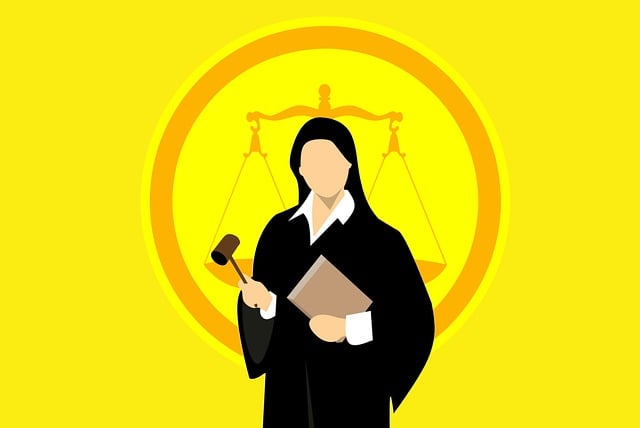Recent criminal law rulings reshape justice systems, addressing privacy, AI evidence reliability, mental health, and sentencing. These developments impact precedents, public perceptions, and policy discussions on criminal justice reform. Understanding accused individuals' rights is crucial. Sentencing evolved from retribution to a balanced approach including deterrence, rehabilitation, and restitution. Cybercrime challenges require robust cybersecurity, education, and international collaboration within dynamic legal frameworks.
“Dive into the dynamic world of criminal law, where justice meets legislation. In this insightful article, we explore the latest developments shaping legal landscapes. From recent court rulings with far-reaching impact to understanding the rights of accused persons, we delve into key aspects. Additionally, we analyze the evolution of punishment practices and the rising challenge of cybercrime. Stay informed about these critical criminal law issues and their effect on society.”
- Recent Criminal Law Rulings and Their Impact
- Understanding Rights of Accused Persons
- Evolution of Punishment and Sentencing Practices
- Cybercrime: Legalities and Prevention Strategies
Recent Criminal Law Rulings and Their Impact

Recent Criminal Law Rulings have significantly shaped legal landscapes, underscoring the dynamic nature of justice systems. Key decisions have focused on issues like privacy in digital age, rights of accused individuals, and sentencing guidelines. One notable ruling concerned the admissibility of AI-generated evidence, highlighting concerns over reliability and potential biases. This decision echoes broader debates about the role of technology in criminal proceedings.
Another impactful ruling addressed the treatment of mental health issues, emphasizing the need for more compassionate approaches to sentencing. These developments underscore the ongoing evolution of criminal law, as legal systems strive to balance protection of society with equitable application of justice. The implications stretch far, affecting not only legal precedents but also public perceptions and policy discussions around criminal justice reform.
Understanding Rights of Accused Persons

In any criminal law scenario, it’s paramount to comprehend the rights afforded to accused persons. These individuals face serious allegations and have a right to be treated fairly within the legal system. According to the U.S. Constitution and international human rights laws, everyone charged with a crime has certain fundamental rights that must be respected.
These include the right to remain silent, ensuring against self-incrimination; the right to legal counsel, providing access to a lawyer for defense; and the right to a fair trial, where evidence is presented and evaluated impartially. Understanding these rights empowers accused persons to navigate the complexities of criminal law and seek appropriate legal representation.
Evolution of Punishment and Sentencing Practices

The evolution of criminal law is deeply intertwined with the transformation of punishment and sentencing practices, reflecting societal values and moral standards over time. Historically, punishments were often severe and focused on retribution, aiming to inflict pain proportional to the perceived crime. This approach has gradually shifted towards a more rehabilitative model, acknowledging that effective criminal justice involves not just punishment but also preparation for reintegration into society.
Modern sentencing practices prioritize balancing deterrence, rehabilitation, and restitution. Judges now have more discretion in imposing sentences, taking into account mitigating and aggravating factors, as well as the offender’s background. This flexibility allows for tailored responses to crimes, recognizing that one-size-fits-all punishments may not be effective or just. Additionally, community-based sentencing options, such as probation, house arrest, and restorative justice programs, have gained prominence, emphasizing the role of rehabilitation and accountability beyond traditional prison sentences.
Cybercrime: Legalities and Prevention Strategies

In the digital age, cybercrime has emerged as a significant challenge within the realm of criminal law. As our world becomes increasingly connected, malicious actors exploit online vulnerabilities to commit fraud, steal sensitive data, and disrupt critical infrastructure. The legalities surrounding cybercrime are complex, involving federal and international jurisdictions, as well as dynamic legislative responses to evolving threats. Legal frameworks must address the anonymity afforded by the internet, cross-border nature of cyberattacks, and the rapid spread of malicious software.
Prevention strategies for cybercrime involve a multi-faceted approach. This includes robust cybersecurity measures such as encryption, firewalls, and regular software updates. Education plays a crucial role in empowering individuals to recognize phishing scams, strong passwords, and safe online practices. Additionally, collaboration between law enforcement agencies, private sector entities, and international organizations is essential for sharing intelligence, tracking cybercriminals, and developing effective responses to emerging threats. These collective efforts are vital to navigating the complex landscape of cybercrime and ensuring a safer digital environment under criminal law.
In exploring the diverse landscape of criminal law, from recent rulings shaping legal precedents to the evolving nature of punishment and the rise of cybercrimes, it’s evident that understanding these dynamics is paramount. By delving into the rights of accused persons and adapting sentencing practices, the legal system navigates complex challenges. As technology advances, addressing cybercrime through robust legal frameworks and prevention strategies becomes increasingly vital for safeguarding society in the digital age. These aspects collectively underscore the constant evolution of criminal law to meet contemporary demands.
